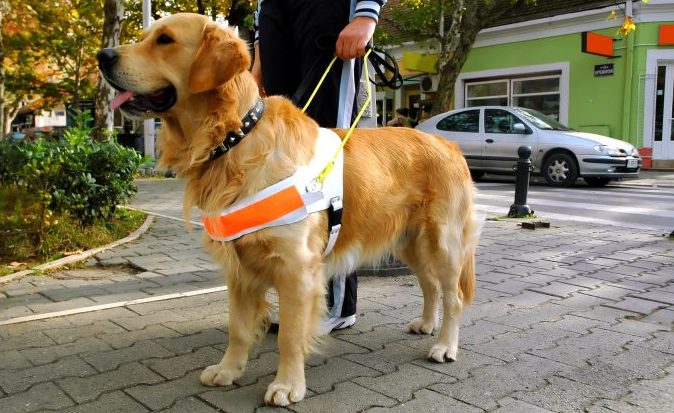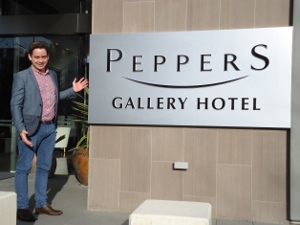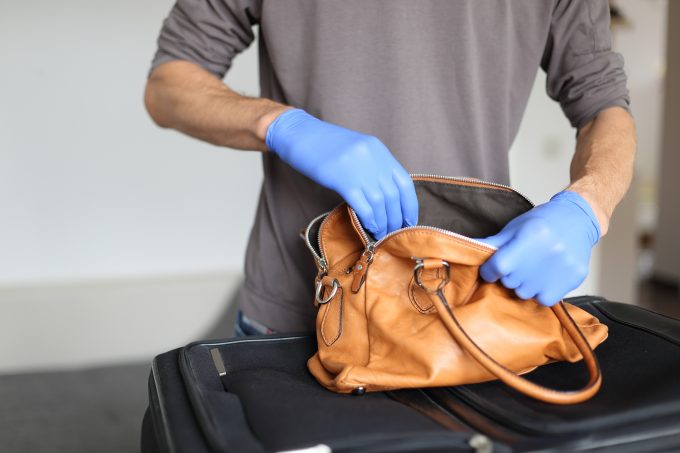
Property faces $10,000 fine for assistance dog ban
A South Australian family has complained to the Australian Human Right Commission after their children were left devastated by a holiday park’s refusal to admit the family’s service dog.
[pro_ad_display_adzone id=”15046″ align=”left”]Eight-year-old Logan Reese, who lives with an acquired brain injury as a result of a tumour he was born with, is supported at all times by a dog trained to respond to medical emergencies, including seizures.But last weekend his Labrador, Hunter, was refused entry to the Marion Holiday Park in Adelaide, forcing the family to call off their holiday plans.
Mother of three Murrianna Reese says the dog is a vital support for all her children. Logan has an acquired brain injury, epilepsy, autism and is non-verbal while his older siblings, Mystique and Zach, are also autistic.
“Hunter helps all of them go out and about and helps us as parents take them out and about in society,” she told the ABC.
“Logan runs away and hides and you get no response, but since we’ve had Hunter that’s decreased from every time you go out in public to once every four months.
“Even then, he doesn’t run away and hide, he stays within sight of Hunter and Hunter is trained to follow him and keep him out of danger.
“He just supports them daily, not just them, us as parents as well.”
The family has now complained to the Human Rights Commission, which has the power to impose fines of up to $10,000 for those refusing entry to an assistance dog.
The family claims to have stayed at the park previously with the trainee service dog – and with the staff’s knowledge – but the park says it has no record of Hunter being admitted previously.
Ms Reese said she showed the staff member an identification card approved by Victorian-based training organisation Brama Labradors Inc, showing pictures of her with Hunter labelled as an “assistance dog in training – please do not pat”.
While the date on the ID card had expired, Ms Reese said the reason staff gave for refusal was “he’s not a guide dog”.
“We had made it clear to the park before and showed them the exact same ID (before),” she said.
“Not only have they discriminated against Hunter. They have discriminated against our kids with disabilities as well.”
Marion Holiday Park manager Alan Rowett told 9News he believed he had the right to turn the family away as Hunter wasn’t a vison or hearing assistance dog.
He described the ID shown as a “breeder’s document” deemed inadequate by his staff member, and said the law around accreditation was “blurry”.
Rowett reportedly described the situation as “awful”, saying staff didn’t want to turn people away but the otherwise dog-free park had to be mindful of fellow guests.
He said the family had indicated they were bringing an assistance dog when they booked but had not responded to an email requesting accreditation a week earlier.
Brama Labradors operator Amanda King, who called the park to explain the situation with no success, said Hunter was a dog in training. Such animals, she said, were generally afforded rights as an accredited assistance dog under the federal Disability Discrimation Act.
“It happens all the time. It’s a lack of education about what assistance dogs are,” she said.
The SA Dog and Cat Management Board is the official body which accredits assistance dogs locally and recognises accreditation by other bodies such as Guide Dogs associations.
The organisation’s website says its accreditation “is not an absolute requirement for a person with a disability to claim public access rights due to the protection that is available under the Commonwealth Disability Discrimination Act 1992.
“Therefore, if a dog has been accredited by an overseas or interstate agency, you may already have public access rights.”
The Murray Bridge family headed home after being refused entry saying much of the surrounding accommodation was booked out and the $1500 they had prepaid to the park left their spending capacity limited.
A spokesperson for the holiday park told the ABC she regretted the inconvenience to the family, but said the reason the dog was refused entry was because the documentation was out of date.
“While we do not accept pets into the park, we welcome and accommodate accredited or certified assistance dogs,” she said.
“When Ms Reese booked, she advised that she wanted to bring with her an assistance dog. We responded by email to request that the required documentation be sent to us to enable the booking to proceed. We did not receive a reply.
“When the family arrived at the park on Saturday, the document that they presented had expired. The dog was not accredited or certified. We could not allow it in the park. We fully refunded all money paid.
“In the interests of park patrons, we are obliged not to allow pets into the park and must insist on proper documentation.”
In a statement, South Australia’s Equal Opportunity Commissioner Niki Vincent said she could not comment on the case and the matter would be handled by the Australian Human Rights Commission.

AccomNews is not affiliated with any government agency, body or political party. We are an independently owned, family-operated magazine.






